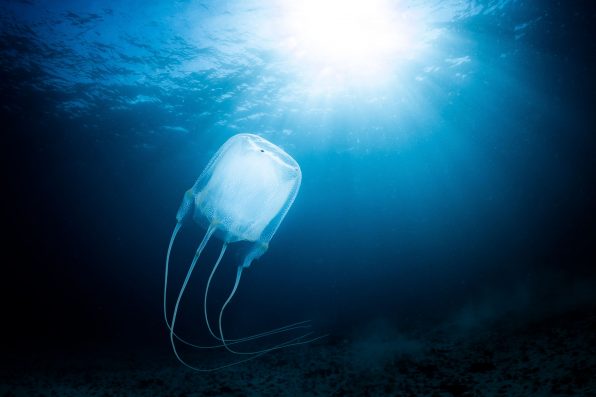The box jellyfish swims in the warm waters of the Caribbean, searching for small crustaceans to eat while carefully avoiding the roots of mangroves, which could easily cause damage to their soft bodies.
The tiny, translucent creatures are about the size of a grape, and they do not have brains, yet they are capable of learning from past experiences.
Researchers have found that although Caribbean box jellyfish lack a central brain, the animals have figured out how to spot and maneuver around obstacles.
It is the first example of jellyfish engaging in associative learning, which is the ability to make mental connections between events and then alter behavior accordingly.
A 2023 study published in Current Biology suggests that the jellyfish use this learning ability, along with a complex visual system, to navigate through mangrove swamps.
In a series of experiments, scientists set up a habitat inside a small tank that mimicked the box jellies’ natural environment. They lined the inside of the tank with alternating vertical stripes.
One scenario featured black and white stripes meant to imitate mangrove roots in clear water. Another had gray and white stripes, which represented mangrove roots in murky water.
Then, the scientists dropped 12 jellyfish in and recorded the creatures’ behavior over seven and a half minutes. The jellyfish in the tank with clear water conditions easily avoided running into the wall.
On the other hand, the jellyfish in the murky water conditions collided with the tank wall at first. However, it did not take long for them to change their behavior.

Sign up for Chip Chick’s newsletter and get stories like this delivered to your inbox.


